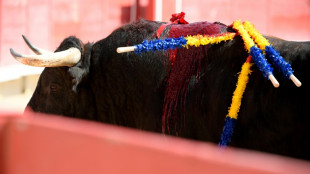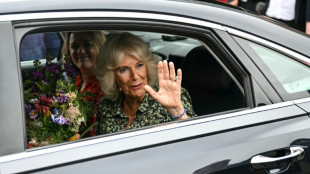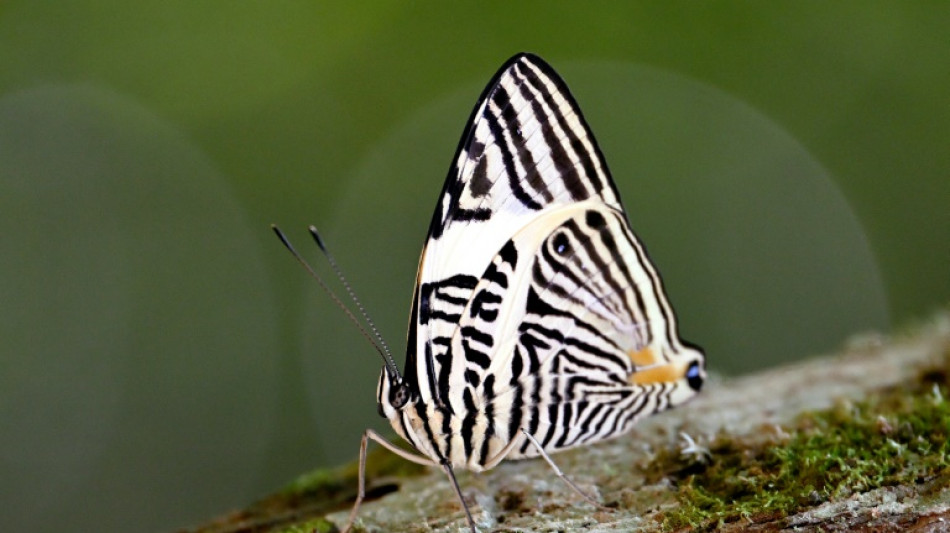
-
 Israel face France in Paris football match under tight security
Israel face France in Paris football match under tight security
-
Beijing's fears after Trump fills key posts with China hawks

-
 Man with explosives dies trying to enter Brazil's Supreme Court
Man with explosives dies trying to enter Brazil's Supreme Court
-
South Korea exam sees record number of re-takes after medical reforms
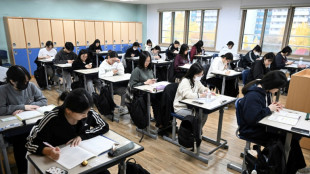
-
 Asian markets mixed as traders weigh Fed; bitcoin above $90,000
Asian markets mixed as traders weigh Fed; bitcoin above $90,000
-
Pumas seek historic win over 'hurt' Irish

-
 Advantage Martin as MotoGP reaches gripping climax in Barcelona
Advantage Martin as MotoGP reaches gripping climax in Barcelona
-
Man with explosives dies trying to enter Brazil Supreme Court

-
 Mike Tyson, 58, back in ring to face Youtuber Paul
Mike Tyson, 58, back in ring to face Youtuber Paul
-
Hunger in G20 host Brazil is Lula's unfinished fight

-
 Biden, Xi arrive in Peru ahead of face-to-face at Asia-Pacific summit
Biden, Xi arrive in Peru ahead of face-to-face at Asia-Pacific summit
-
Mysterious diamond-laden necklace fetches $4.8 mn in Geneva auction

-
 Lawmakers clash, protesters arrested in wake of Amsterdam violence
Lawmakers clash, protesters arrested in wake of Amsterdam violence
-
Global diabetes rate has doubled in last 30 years: study

-
 Six Israeli troops killed, deadly strikes in Lebanon
Six Israeli troops killed, deadly strikes in Lebanon
-
US envoy says Mexico's 'hugs not bullets' strategy failed

-
 Lyon and Chelsea stay perfect in Women's Champions League
Lyon and Chelsea stay perfect in Women's Champions League
-
Alcaraz beats Rublev to open ATP Finals account, Ruud misses last four chance

-
 Another clean sheet for Onana as E. Guinea, I. Coast qualify
Another clean sheet for Onana as E. Guinea, I. Coast qualify
-
From 'Little Marco' to 'Mr Secretary': Rubio shows Trump China push

-
 Sri Lanka president eyes parliament win in snap election
Sri Lanka president eyes parliament win in snap election
-
Spain flood epicentre braces for fresh deluge
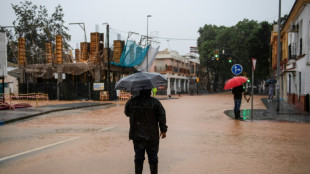
-
 New York drought conditions fan flames, spur water saving
New York drought conditions fan flames, spur water saving
-
Football 'world order' is changing, says Brazil coach

-
 Maiden century by Varma gives India unbeatable series lead
Maiden century by Varma gives India unbeatable series lead
-
Buy now, pay later: Latin America pressured by Chinese online shops

-
 Republicans complete power takeover with House majority
Republicans complete power takeover with House majority
-
Kane disappointed by England Nations League withdrawals

-
 Trump victory signals golden era for crypto industry
Trump victory signals golden era for crypto industry
-
'First Buddy': Musk takes unusual star role with Trump

-
 Workers stage walkout at US maker of Fallout video game
Workers stage walkout at US maker of Fallout video game
-
England will not change 'DNA' against South Africa, says Slade

-
 Sri Lanka beat New Zealand to go 1-0 up in ODI series
Sri Lanka beat New Zealand to go 1-0 up in ODI series
-
Biden, Xi to meet in Peru on Saturday: US official

-
 Spurs coach Popovich suffered 'mild stroke', says NBA team
Spurs coach Popovich suffered 'mild stroke', says NBA team
-
Spain flood epicentre under highest alert for fresh rain
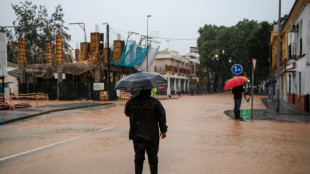
-
 Turkey scrubs up its baths to keep hammam tradition alive
Turkey scrubs up its baths to keep hammam tradition alive
-
'Very humiliating': Bangladesh's Yunus seethes over climate cash fight
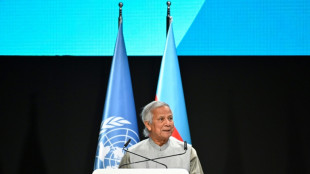
-
 'Welcome back': Trump, Biden shake hands in White House
'Welcome back': Trump, Biden shake hands in White House
-
Tech's green wave hits choppy waters
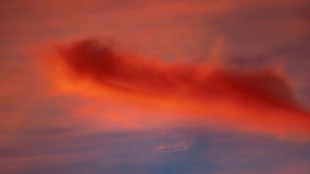
-
 Fernandes hopes Amorim can 'change the energy' at Man Utd
Fernandes hopes Amorim can 'change the energy' at Man Utd
-
Trump, Biden shake hands in White House, vow smooth transfer

-
 Gatland battling 'pain' during tough Wales rebuild
Gatland battling 'pain' during tough Wales rebuild
-
COP29 fight for climate money 'humiliating': Bangladesh's Yunus
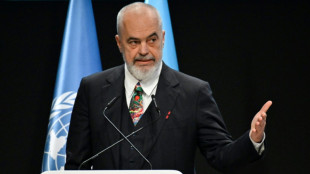
-
 McIlroy aims for glory on happy hunting ground in Dubai
McIlroy aims for glory on happy hunting ground in Dubai
-
Spain evacuates thousands in fresh flood alarm

-
 US death row inmate stages jazz protest for release in London court
US death row inmate stages jazz protest for release in London court
-
Markets stall, inflation and bitcoin rise amid Trump fears

-
 Germany's embattled Scholz trades blows with rivals as election looms
Germany's embattled Scholz trades blows with rivals as election looms
-
Alcaraz beats Rublev to open ATP Finals account


In Ecuadoran Amazon, butterflies provide a gauge of climate change
Biologists on a trail in the Ecuadoran Amazon hold their breath as they distribute a foul-smelling delicacy to lure butterflies, critical pollinators increasingly threatened by climate change.
A team has hung 32 traps made of green nets, each baited with rotting fish and fermented bananas. They are meant to blend in with the forest canopy. Their pungent odor clearly does not.
Since last August, a team of biologists and park rangers has been monitoring butterfly numbers in the Cuyabeno Wildlife Reserve, a park famed for its abundant flora and fauna.
They catch and document the colorful insects, releasing most with an identifying mark on their wings. Some of them, possibly from previously unknown species, are kept for further study.
The results of the team's work, however, have been discouraging.
Butterflies are "bioindicators," living organisms whose well-being provides a measure of the health of their surrounding ecosystem, and their numbers are decreasing, biologist Maria Fernanda Checa told AFP.
While the number of species may not have declined by more than 10 percent, in terms of absolute butterfly numbers "the decrease is very significant... maybe 40/50 percent," she said.
"It is something that alarms us."
- Bioindicators -
Under expedition leader Elisa Levy, a team checks the nets for captured butterflies.
They hold the insects delicately by their tiny abdomens and manipulate their legs and wings with tweezers.
Some are bright red and blue, others have what resemble zebra stripes. Some are see-through, like glass.
About three-quarters of fruit- or seed-producing crops for human consumption depend on pollinators, which provide a free service worth billions of dollars.
The UN has warned that 40 percent of invertebrate pollinators -- particularly bees and butterflies -- risk global extinction, posing certain risks to humanity itself.
Butterflies, said Checa, are "very sensitive, even to small changes in the ecosystem" throughout their short lifespan from egg to caterpillar to reproductive adult.
Levy explained that tropical plants -- unlike ones in regions with distinct seasons -- are not accustomed to extreme weather variations.
If they do not adapt to a fast-changing climate, these plants could be lost, along with the butterfly larvae that feed on them.
Ecuador, relatively small but extremely biodiverse, hosts about 4,000 butterfly species -- nearly as many as its much larger neighbors Peru and Colombia.
Yet in places like the Yasuni National Park, which neighbors Cuyabeno, "the rate of species discovery is slower than the rate of extinction," said Checa.
D.Kaufman--AMWN
